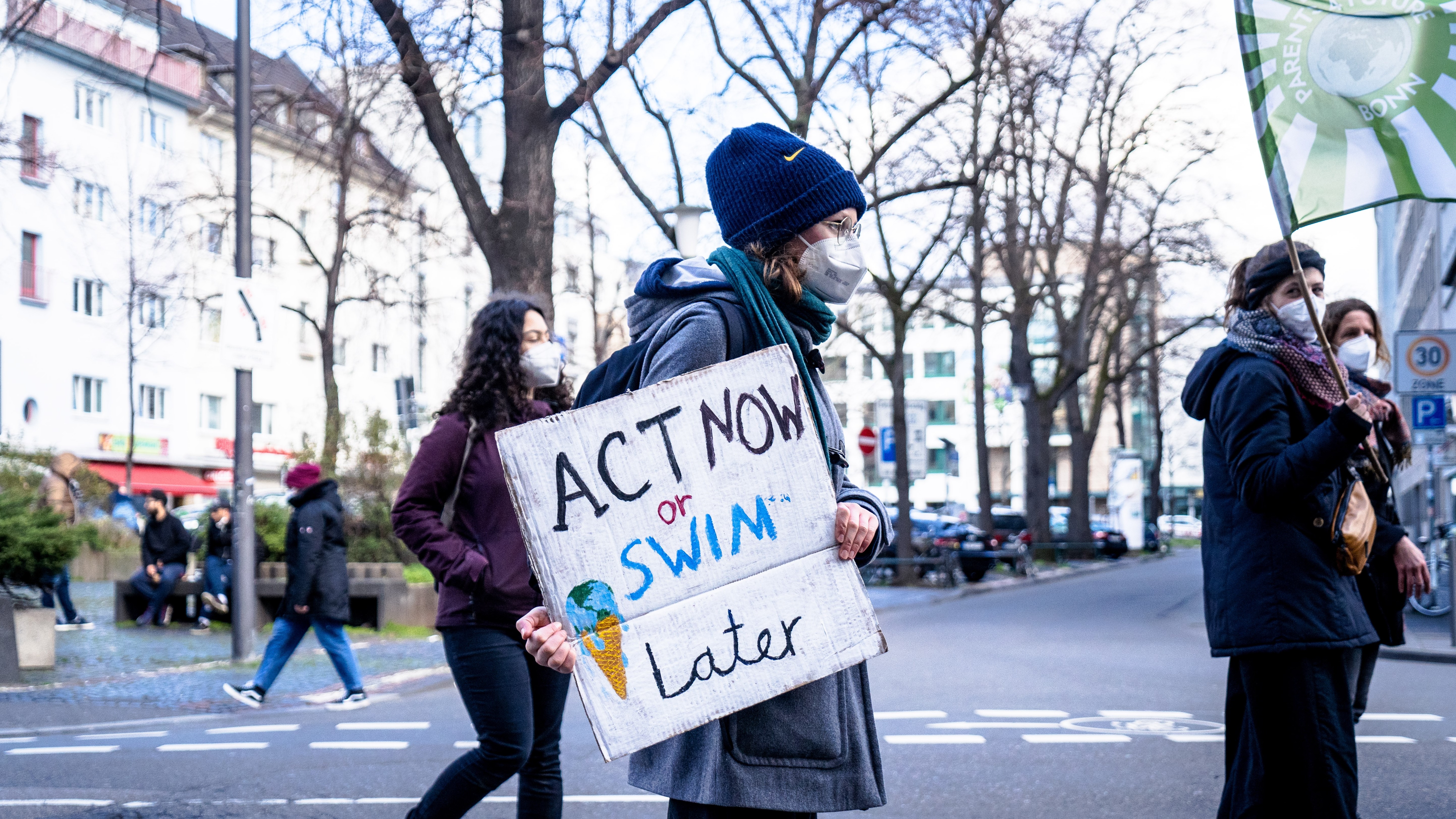New initiative aims to leverage climate adaptation investment
04 December 2023

Photo by Mika Baumeister on Unsplash
DUBAI – The United Nations Industrial Development Organization (UNIDO) and Global Environment Facility (GEF) launched a project at COP28 to share lessons from recent investments in climate resilience and to identify strategies that can boost successful adaptation measures involving the private sector.
The new initiative will tap the experiences of winners of the GEF Challenge Program for Adaptation Innovation and develop a learning strategy to help exchange knowledge and experiences in this field. This will include efforts that have catalyzed innovative solutions to address climate impacts, for instance in agricultural resilience, urban infrastructure, and disaster alert systems.
Supported by the GEF-managed climate adaptation funds, the Least Developed Countries Fund (LDCF) and Special Climate Change Fund (SCCF), the project will facilitate the capturing and sharing of experiences from the 19 initiatives that have been awarded seed funding by the Challenge Program for Adaptation Innovation, as well as from other climate-resilience investments in developing countries.
Drawing in more private investment is crucial to closing the large climate adaptation financing gap that is threatening the resilience of people and ecosystems alike. Information and knowledge, proof of concept, methodologies and metrics are key to mitigating risks that hinder private sector investment in climate change adaptation.
“The shortfall we face in meeting developing country needs to adapt to climate change is not just about finance, but also about knowledge,” said GEF Lead Environmental Specialist Chizuru Aoki. “In this partnership with UNIDO and other leading climate adaptation innovators, we are aiming to leverage and share the entrepreneurial spirit of the private sector, opening paths to exchanging practical experiences and unlocking future innovation.”
“Innovators in the business world are increasingly taking the lead in showing how climate resilience investments are not just possible, they can be highly profitable,” said UNIDO Managing Director Ciyong Zou. “Opportunities for market-based solutions for climate adaptation and resilience are increasingly coming to light. We need to learn from these initiatives and partnerships, and identify ways to scale them up in different locations.”
The UNIDO-GEF initiative will create three communities of practice to gather and showcase knowledge and learning generated by innovative climate adaptation projects. They will focus on three pillars identified as key to opening up private investment in climate change adaptation: blended finance investment funds; micro, small and medium-sized enterprise incubation and acceleration; and climate change adaptation impacts and metrics.
Each community of practice will be led by an institutional entity with expertise in the field, namely the Global Adaptation and Resilience Investment Group (GARI), Climate-KIC, and the United Nations Environment Programme Finance Initiative (UNEP-FI).
This initiative draws on the GEF Challenge Program for Adaptation Innovation, which has provided seed funding for innovative climate adaptation initiatives and models, in two rounds to date. The Challenge Program, funded by the LDCF and SCCF, has been a tool to stoke and support new partners in climate adaptation solutions in developing countries where needs are great and investments are lacking.
About the UN Industrial Development Organization (UNIDO)
UNIDO is a specialized agency of the United Nations with a unique mandate to promote and accelerate inclusive and sustainable industrial development. UNIDO provides support to its 172 member states through four mandated functions: technical cooperation; action-oriented research and policy-advisory services; normative standards-related activities; and fostering partnerships for knowledge and technology transfer. Its work is concentrated in three focus areas: ending hunger by helping businesses from farm to fork; stopping climate breakdown by using renewable energy and energy efficiency to reduce industrial greenhouse gas emissions; and supporting sustainable supply chains so that developing country producers get a fair deal and scarce resources are preserved.
About the Global Environment Facility (GEF)
The GEF is the world’s largest funder of biodiversity protection, nature restoration, and climate change response in developing countries. It finances international environmental conventions and country-driven initiatives that generate global benefits. The GEF partnership connects 186 member governments with civil society, Indigenous Peoples, and the private sector, and works closely with other environmental financiers for efficiency and impact. To date, the GEF has provided more than $23 billion in grants and blended finance and mobilized another $129 billion in co-financing for more than 5,000 national and regional projects, which have restored and improved the management of protected areas larger than the size of Brazil.
About the Least Developed Countries Fund (LDCF)
The GEF-managed LDCF is the only multilateral fund that focuses exclusively on the unique climate adaptation needs of Least Developed Countries. LDCF provides support in several priority areas for adaptation including agriculture, water, food, health, nature-based solutions, infrastructure, and climate information services. It builds institutional capacity for adaptation planning, scaling up finance, engaging the private sector, and adopting a whole-of-society approach for inclusive adaptation. The LDCF has financed 365 projects and programs with approximately $1.7 billion in grants. This has directly benefited more than 52 million people and strengthened the management of more than 8 million hectares of land for climate resilience.
About the Special Climate Change Fund (SCCF)
The GEF-managed SCCF helps developing countries address the negative impacts of climate change through innovation, technology transfer, and private sector engagement. It also offers targeted support to Small Island Developing States, given their specific climate adaptation needs. The SCCF has provided $363 million in grants for 88 projects related to climate-resilient agriculture value chains, improved water management, integrated coastal management, climate risk insurance, nature-based solutions, and more. These initiatives have benefited approximately 9 million people and helped bring more than 5 hectares of land under more sustainable management.